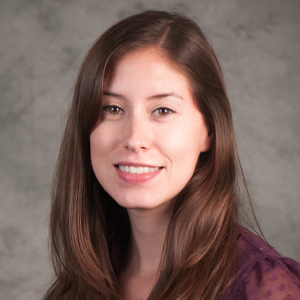
MOSAIC scholar navigates a nontraditional path
Renato Navarro traces the air with his finger as he describes his career journey. “I always have this image of an airplane flying in zigzags to represent my initial path to academia,” he said. “I never thought I would be sitting here.”
Navarro’s family immigrated to Southern California from Mexico when he was five years old. Growing up, he had few role models to show him the value of higher education so, after high school, he joined the Army. He was still in basic training when the 9/11 terrorist attacks set him on an unexpected trajectory. He was deployed to Iraq in 2004 where, at age 19, he led soldiers in a war zone.
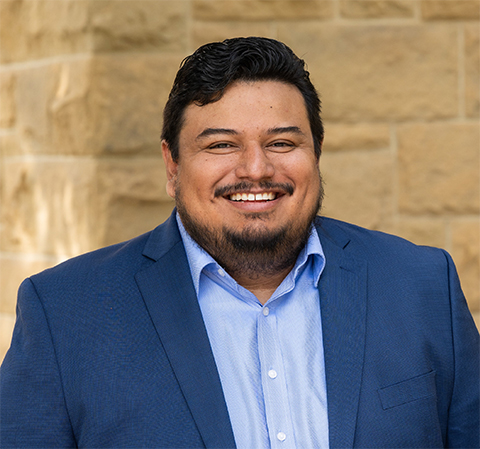
“It forces you to be more mature and act differently,” he said.
While in the Army, Navarro talked with officers about the careers he could have with a college degree. Inspired by what he heard, he enrolled in San Antonio College after his Army service and began studying biochemistry with the goal of becoming a physician. After transferring to St. Mary’s University, Navarro was completing his last semester when he was deployed a second time to Iraq as a member of the Army Reserve.
After his second deployment, Navarro completed his bachelor’s degree but missed the cycle to apply to medical schools. Unsure whether to take a gap year, he visited Texas State University and ended up knocking on the door of Chad Booth to ask about classes that were being offered. After learning about his interest in medicine, Booth encouraged Navarro to contact a new professor in the chemistry and biochemistry department who was studying biomaterials, Tania Betancourt. Working in Betancourt’s lab ignited Navarro’s passion for research and biomaterials.
“I really enjoyed formulating hypotheses, conceptualizing experiments, predicting outcomes, and then getting into the lab and seeing it happen,” he said.
Navarro completed his master’s degree in chemistry in Betancourt’s lab, developing biomaterials to study cancer metastasis. He earned his Ph.D. in polymer science and engineering at the University of Michigan with Peter X. Ma and is now a postdoc in Sarah Heilshorn’s lab at Stanford University.
Navarro is developing biomaterials to prevent the inflammation and scarring of heart tissue that follow a heart attack. Many emerging treatments require weeks of multiple daily injections to control the tissue damage, greatly limiting their utility and effectiveness. Navarro thought of a new method to address this challenge and worked with Heilshorn to apply for the Maximizing Opportunities for Scientific and Academic Independent Careers, or MOSAIC scholars program.
"Sarah was great in teaching me how to move from formulating an idea to enticing other people to become excited about the idea and see its value,” he said.
In his project, “Catheter-injectable system for local drug delivery after myocardial infarct,” Navarro proposes that designing drug-loaded nanoparticles that can bond to an injectable hydrogel would extend their effect on damaged heart tissue, eliminating the need for daily painful injections. The nanoparticles he’s designing contain dynamic binding ligands on their surface that serve as the cross-linking points for the injectable hydrogel so it can be extruded through a catheter and then recover its initial mechanical strength, which is key to resisting detachment when the hydrogel is exposed to forces exerted by the heart.
Navarro is now applying for faculty positions; he aims to continue his work on injectable biomaterials and teach aspiring scientists. As a first-generation and nontraditional student, Navarro said his Army experience gave him the resilience to achieve his goals.
“My military background was instrumental in keeping me going because I understood what failure looked like,” he said. “It’s okay to fail, and things never go 100% as planned.”
Equally important was his ability to find good mentors.
“My entire journey can be summed up by finding mentors at the right time and whenever possible,” Navarro said. “It is great to know people who are willing to give up their time to help make you a better person and reach your goals with no expectation of getting something in return. So, now I try to work as hard as I can to pay this back.”
Enjoy reading ASBMB Today?
Become a member to receive the print edition four times a year and the digital edition monthly.
Learn moreGet the latest from ASBMB Today
Enter your email address, and we’ll send you a weekly email with recent articles, interviews and more.
Latest in People
People highlights or most popular articles
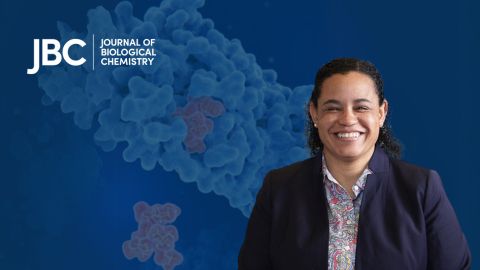
Meet Donita Brady
Donita Brady is an associate professor of cancer biology and an associate editor of the Journal of Biological Chemistry, who studies metalloallostery in cancer.
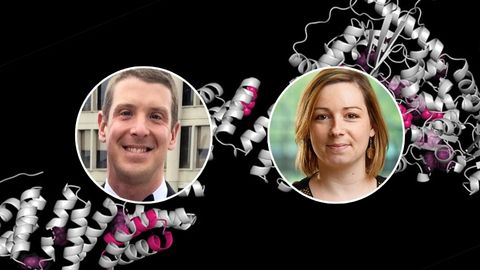
Glyco get-together exploring health and disease
Meet the co-chairs of the 2025 ASBMB meeting on O-GlcNAcylation to be held July 10–13, 2025, in Durham, North Carolina. Learn about the latest in the field and meet families affected by diseases associated with this pathway.
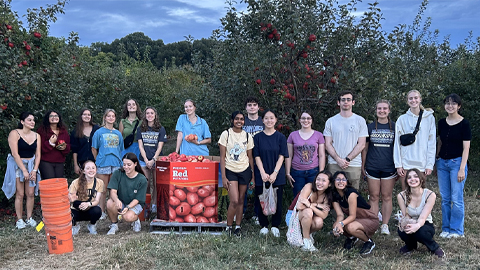
ASBMB recognizes 2025 outstanding student chapter
The Purdue group, led by Orla Hart, developed STEM outreach initiatives for low-income and minority students in Lafayette, Indiana.
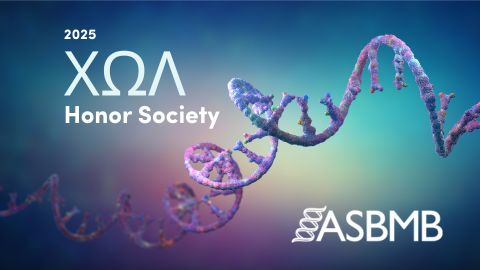
ASBMB inducts 2025 honor society members
Chi Omega Lambda, which recognizes exceptional juniors and seniors pursuing degrees in the molecular life sciences, has 16 new inductees in 2025.
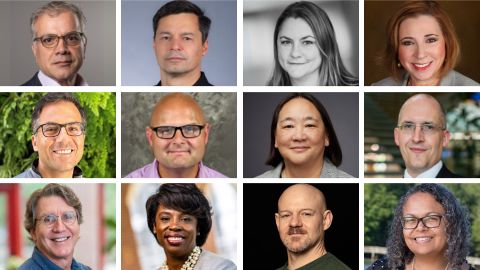
2025 voter guide
Learn about the candidates running for ASBMB President, Secretary, Councilor, Nominating Committee and Publications Committee.
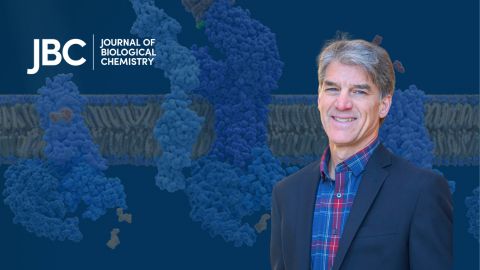
Meet Paul Shapiro
Learn how the JBC associate editor went from milking cows on a dairy farm to analyzing kinases in the lab.

